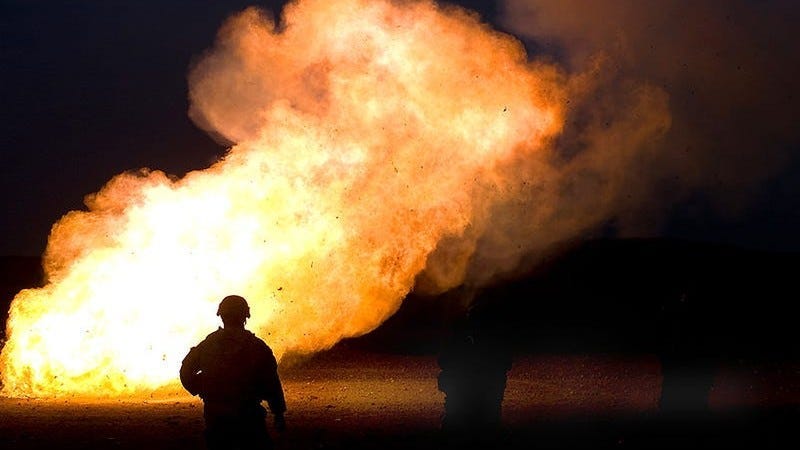
The Senate Veterans Affairs Committee on Tuesday discussed legislation recently passed by the House that would increase the number of veterans who were exposed to burn pits as a result of their military service eligible for benefits and health care from the Department of Veterans Affairs.
Passed earlier this month, the Honoring Our Promise to Address Comprehensive Toxins or PACT Act would make VA health care and benefits available to Iraq and Afghanistan veterans exposed to burn pits and other toxins during their time in the military, even if they don’t have a service-connected disability.
The legislation would also provide new or increased disability benefits to veterans who have become ill with cancer or respiratory conditions such as bronchitis or chronic obstructive pulmonary disease, or COPD. Under the measure, the VA would presume that veterans became sick as a result of exposure to toxic substances during their service.
“We support the bill for many reasons, the first of which is that it helps the VA accomplish a priority goal: getting veterans into VA care,” VA Secretary Denis McDonough said during the hearing.
In the two decades years since 9/11, 3.5 million veterans have been potentially exposed to burn pits, but approximately 70% of burn pit claims have been denied by VA.
The PACT Act differs widely from the Senate’s burn pit legislation. The Health Care for Burn Pit Veterans Act, which passed the Senate in February, is the first step of a three-pronged approach to addressing the issue. It would make more veterans eligible for VA health care but does not address benefits.
The Congressional Budget Office estimates the PACT Act would cost about $318 billion over the next decade. The Senate’s proposal is expected to cost around $1 billion.
Sen. Jerry Moran (R-Kan) said the VA simply does not have the staffing necessary to implement the House bill.
“It includes provisions that perhaps will stretch the VA beyond its operational capacity, providing no guarantee that veterans will be able to access the benefits promised,” he said of the PACT Act.
“We asked the House to pass the [Health Care for Burn Pit Veterans Act], but they have chosen not to take up that piece of legislation yet and decided to send us the bill we’re reviewing today,” Moran added.
McDonough noted that VA is in the process of hiring 2,100 new claims processors to help with the nearly 1.5 million new claims that are anticipated if the PACT Act becomes law.
“We’ll probably have to hire more if this is enacted and use the teams we have more aggressively, with mandatory overtime,” he said.
McDonough also noted that the PACT Act would set up a commission with oversight over the VA’s ability to add presumptive conditions. That could slow down the claims process, he said.
“I get what they’re trying to do, which is to get us to move quicker, but I think the tools they use to get us to do that would actually slow us down,” he said.
VA has already been running a pilot program to establish protocols for creating new presumptive conditions which will end in April, McDonough said.

"The bottom line, in my view, about our new presumptive process is that we have to put the veteran at the center of the process, and we have to increase the sources of science available for us to make the decisions that we need to make,” he said.
Sen. Bernie Sanders (I-Vt) expressed skepticism with that approach.
"I would hope that we can all agree that if we're spending $1 on VA health care, spend that on health care, not a bureaucracy to determine whether or not the veteran, in fact, was exposed or not," he said.
McDonough also urged lawmakers to authorize 31 pending leases on medical facilities as part of the measure.
“Facility space is critical to caring for veterans, and the PACT Act will bring millions more into our care,” McDonough said. “Yet, of 31 large medical facility leases, 21 have been pending for years. We urge you to approve those so we can be genuinely responsive to veterans’ needs.”
Supporters of the passage of the PACT Act, led by comedian and veterans advocate Jon Stewart, held a rally on Capitol Hill in advance of the committee hearing. Senate Majority Leader Chuck Schumer (D-NY) pledged to take the bill to the floor by the end of the year.
Reach Julia LeDoux at Julia@connectingvets.com.



